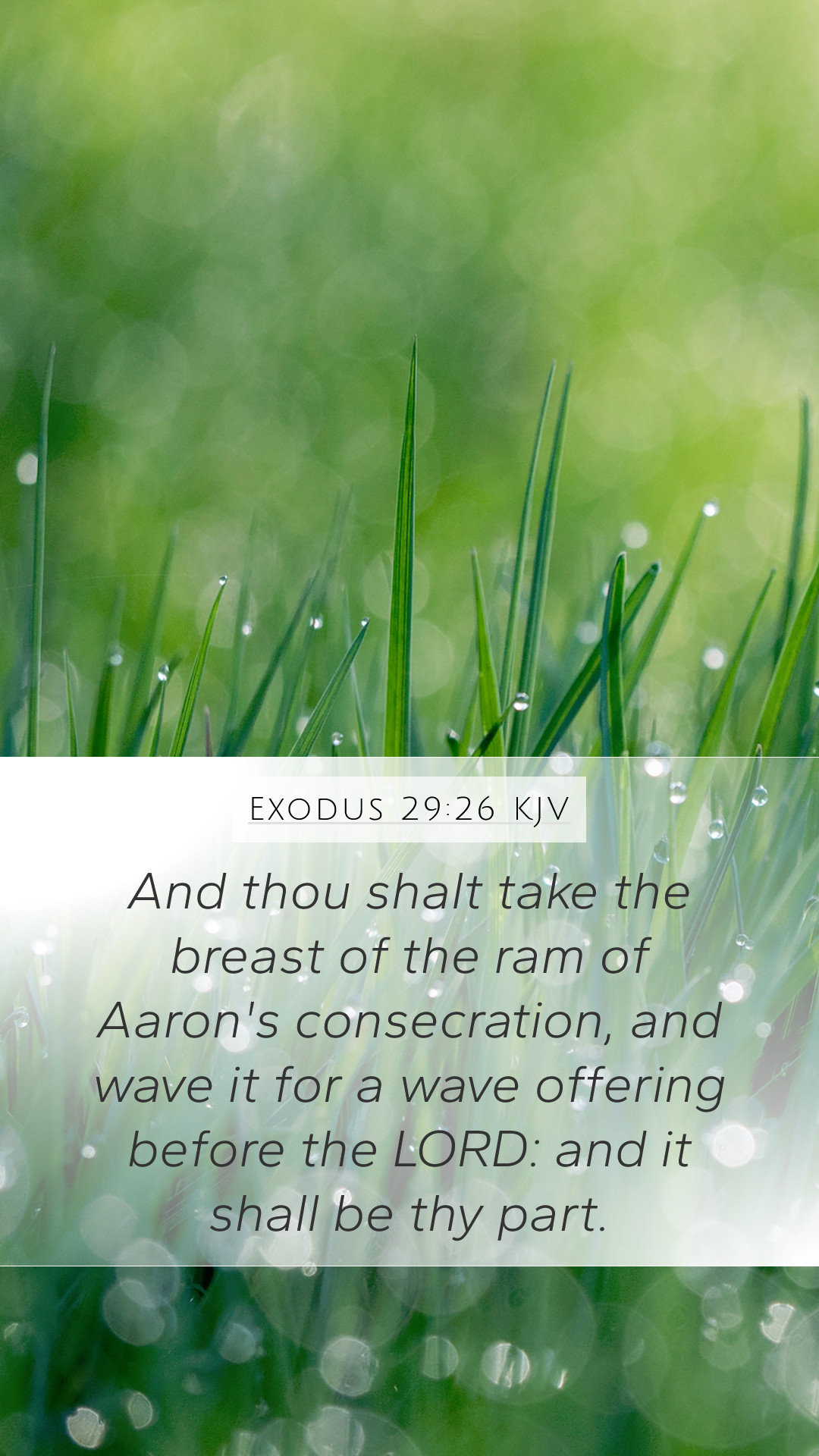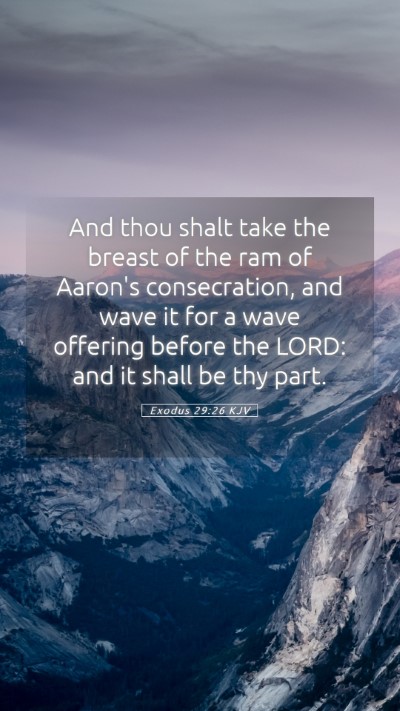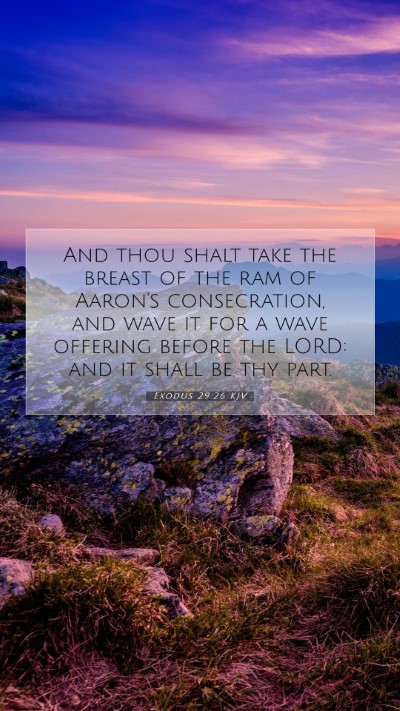Understanding Exodus 29:26
Exodus 29:26 states: "And thou shalt take the breast of the ram of Aaron's consecration, and wave it for a wave offering before the Lord: and it shall be thy part." This verse focuses on the ceremonial practices instituted for the consecration of Aaron and his sons as priests. The meaning of this Bible verse is multifaceted, echoing themes of holiness, separation, and divine appointment.
Historical Context
In understanding this scripture, it is vital to consider the broader context of the Exodus narrative. Following the Israelites' escape from Egypt, God establishes a covenant with them, encompassing laws and rituals crucial for their communal and spiritual identity. This act of consecrating Aaron and his sons as priests serves as a divine directive toward the establishment of worship practices.
The Act of Consecration
According to Matthew Henry, the act of waving offerings—particularly the breast of the ram—is symbolic of presenting oneself before God in dedication and submission. This physical action reflects a deeper spiritual commitment and acknowledgment of God’s sovereignty over their lives. It signifies that what was once common is now set apart for holy purposes.
The Significance of the Wave Offering
Albert Barnes highlights that the wave offering represents a portion of the sacrificial meat that was presented before the Lord, symbolizing the acceptance of the offerer into fellowship with God. This was not merely a ritualistic practice, but an essential aspect of worship that demonstrated the relationship between God and the priests serving on behalf of the people.
Symbolism and Meaning
The act of waving the breast also bears deeper symbolism. Adam Clarke notes that this portion signifies not only the priests' entitlement but also their role as mediators between God and the Israelites. It embodies the idea that the sustenance provided (the offerings) comes as a result of divine grace. Furthermore, it underscores the priest's duties to intercede on behalf of the people, reinforcing the mediatorial role established in the Old Testament.
Biblical Exegesis
This Bible verse commentary provides important insight into the sacrificial system and its relevance. The wave offering, a key element of Hebrew worship, emphasizes the necessity of dedication and the acknowledgment that all things come from God. The lives of the priests themselves serve as living sacrifices, dedicated to God’s service. Consequently, through these rituals, the Israelites acknowledge their dependence on God.
Applications for Today
When exploring applications of Exodus 29:26 to contemporary life, one could reflect on the aspects of dedication and service. Just as Aaron and his sons were set apart for a specific purpose, Christians today are called to live lives dedicated to God's service. Understanding Scripture in this way encourages the faithful to consider how they present themselves before God and how they can serve their communities in Christ's name.
Cross References
- Leviticus 8:22-23 - Further instructions on the consecration of priests
- Exodus 28:1 - The establishment of the priesthood
- 1 Peter 2:9 - The calling of believers as a holy priesthood
Conclusion
The insights gained from Exodus 29:26 through various Bible study resources reveal profound meanings surrounding the themes of consecration and dedication in the life of a believer. Understanding difficult Bible passages like this one provides clarity on the rituals of ancient Israel and their culmination in present-day faith practices. Through in-depth Bible verse analysis, we can appreciate not only the historical significance but also the spiritual implications that continue to resonate in the life of Christians today.


